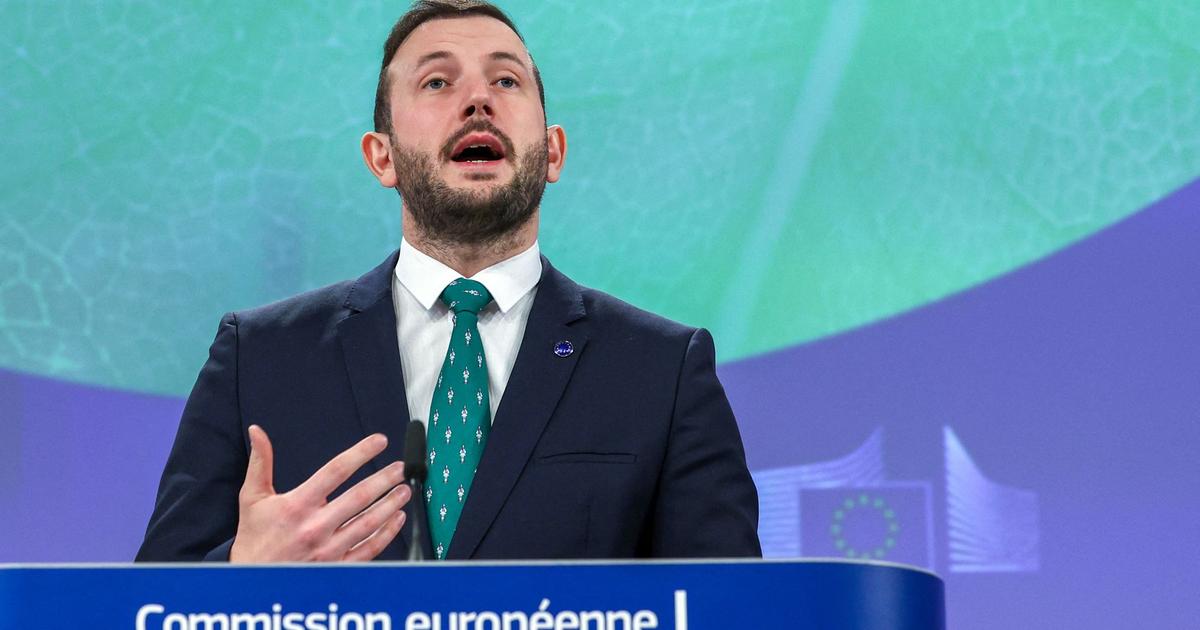In Brussels
To discover
LIVE - Pension reform: Emmanuel Macron reiterates his confidence in Élisabeth Borne, but calls on her to "enlarge the majority"
Shampoo packaging with 30% recycled plastic, ocean-friendly sunscreen, carbon-neutral t-shirts or bananas.
It will no longer only be necessary to proclaim it, but also to prove it, with scientific data in support.
After tackling
"vague and generic"
environmental claims in early 2022 (green product, eco-responsible, etc.) and deciding to crack down on unfair commercial practices, the European Commission wants to curb the proliferation of environmental labels.
No less than 232 exist today in the EU.
Textiles, energy, cosmetics, food… 53% of the 250 “green” claims examined by the Commission in 2020 were misleading or unfounded.
In some cases, the share of plastic from recycled bottles announced, for example, for T-shirts did not exceed 1%.
On Wednesday, the Commissioners for the Environment and Consumers, Virginijus Sinkevicius and Didier Reynders, therefore put on the table a directive particularly awaited by consumer organisations.
Read alsoBertille Bayart: “The new battle of standards”
With the exception of very small and micro-enterprises with less than 10 employees or with a turnover of less than 2 million euros and SMEs that can be helped at national level, all European companies wishing to do green marketing will have to justify it. based on recognized scientific data.
The methodology used, which will not be exclusively the one called PEF (Product Environmental Footprint), measuring the integral environmental footprint of products, must take into account the entire life cycle, from extraction to disposal of materials, through recycling.
A label or a QR Code, directing the consumer to a website where the company has published the data used, will be mandatory.
On claims of carbon neutrality, these same companies, like those in third countries, will also have to distinguish between their own efforts to reduce emissions and the use of offset systems, such as planting trees.
It is up to the Member States to ensure the prior control of these allegations and to financially penalize the bad players.
And, faced with the myriad of existing labels, most often dubious, no more public label will be authorized, unless it is supervised at EU level, the Commission inviting everyone to use its EU Ecolabel .
Repair instead of throwing away
For the European Consumers Bureau, this major cleaning is obviously good news, explains Dimitri Vergne who welcomes a whole
“new approach intervening upstream”
and not only, as the text of 2022 does, when the false information has already been communicated. .
"We are attacking the source of the problem and the systemic nature of 'greenwashing'"
, observes the researcher.
To make these companies truly more virtuous, the Commission also imposed new obligations on European sellers and manufacturers on Wednesday to repair defective products and no longer replace them automatically.
35 million tonnes of waste are produced each year in the EU for lack of repair.
Read alsoWhat is planned obsolescence?
Consumers will have a right to repair five to ten years after their purchase and the cost will rest with the manufacturer.
They will be given other tools, such as online platforms, to resell faulty goods to refurbishers.
Fridges, dishwashers, washing machines, vacuum cleaners are concerned.
Mobile phones and tablets will soon follow.

